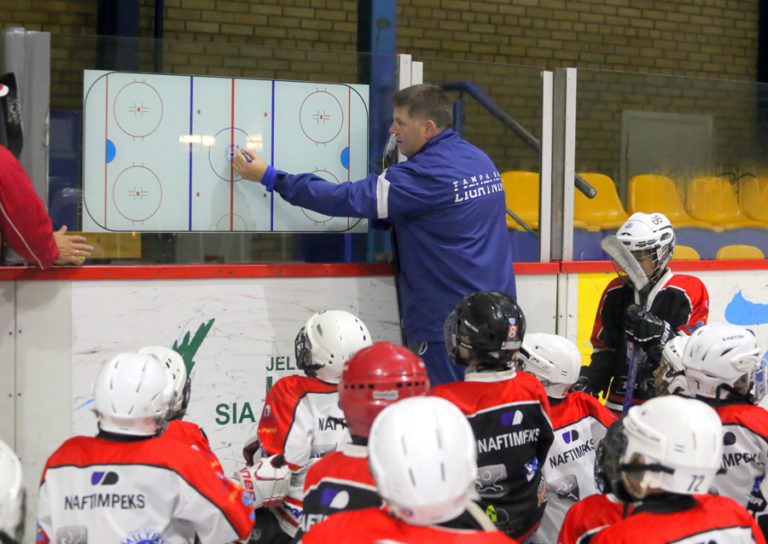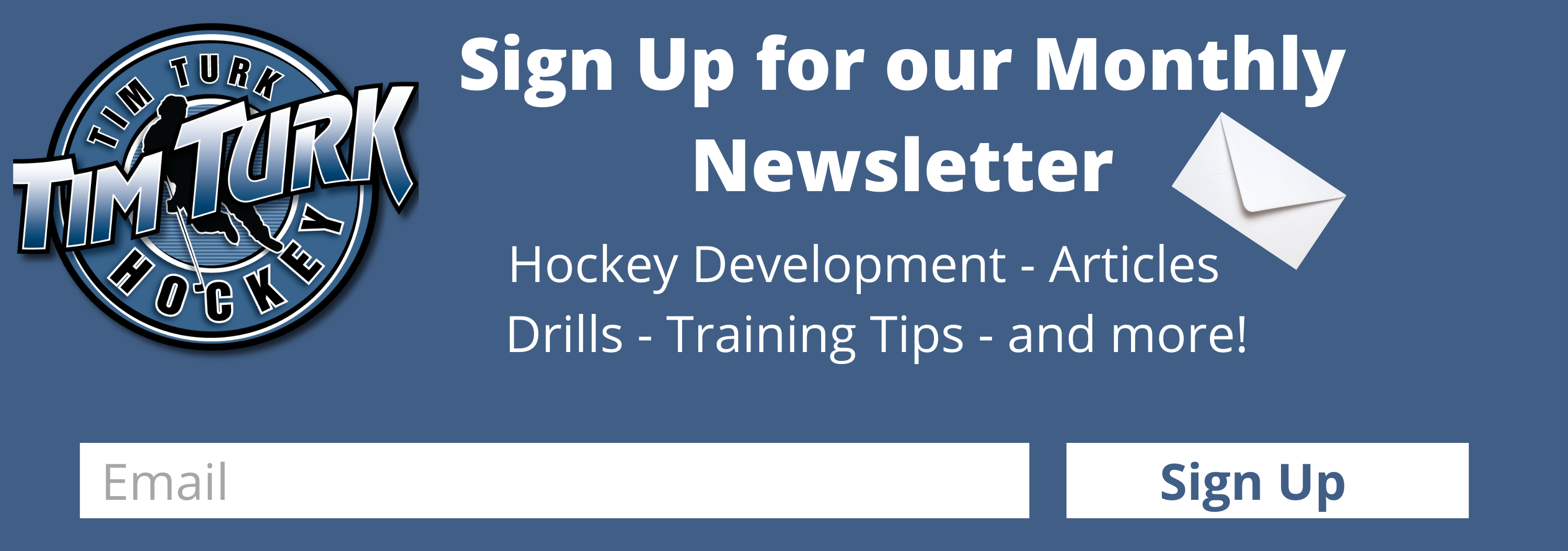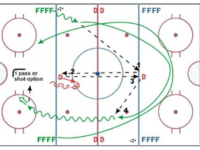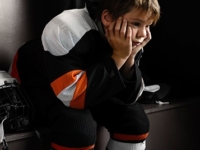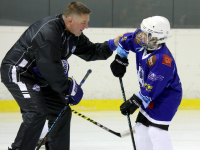Running a minor hockey practice isn’t always easy; Some kids can be difficult to control, and trying to get them all playing and learning cooperatively, safely, and effectively can be a serious challenge, even for most experienced and confident coaches. There are a few different things you can do to make sure you’re running good practices that will maximize your practice times and get everyone involved.
Assessment
The first thing to do is assess the strengths of your players. Make a note of each individual’s skills and abilities, and work your strategies out accordingly. Sketch out ideas on paper so you have something concrete to refer to, and an overall plan for the season which will keep your kids moving forward to a final goal. If something isn’t working however, or you find one of your players isn’t suitable to the role you put them in, move things around; don’t feel you have to stick to a plan just because that was what you put onto paper. Being flexible and trying new things is essential to running an effective hockey practice.
Teach your players how to read the game. It’s impossible to have a plan for every scenario that they might face, so they’ll need to know how to react to the unexpected, and how to think on their feet. You never know how your opponent’s strategy will play out, so teach your players how to think for themselves when confronted with a surprising tactic.
Keep it Interesting
Make your practices creative and unique, getting players to try out and experiment with a variety of skills. Although repetition is Key in learning, you can plan a variety of different drills that will focus and concentrate on the same skills, but keep them interested. By changing things around and letting them try new things as well, you’ll keep your players involved and make your practices more fun, as well as ensuring they end up as well-rounded players who have broad skill sets and the creativity to deal with unexpected situations.
Ensuring your practices are always moving, will also keep the players invested and not bored. If they don’t find the drills interesting or are always doing the same things, this can lead players to become distracted and play around.
Bring New Energy
Bringing in expert coaches or skills instructors can also help develop specific skills for your players and allow you as a coach to learn other methods of teaching, along with being able to sit back and observe your players as well during this process.
Teach your players the difference between defensive and offensive strategies, and how these should be employed throughout the game, but make sure you don’t move too quickly into complex tactics before they’ve grasped the basics.
At an effective practice, the coach will always have control of the players and there will always be a clear plan for what they’re doing and what skills they’re honing. Players should understand their team’s position, understand the goal of the lesson, and understand their individual aims. Encourage players to ask questions if they don’t understand and for extra help if needed.
Players should feel safe and confident, both with the coach and with the other team mates at all times; make sure there is no bullying or undermining among the players, and encourage them to support each other and work as a team.
The most important role of the coach is to guide the players, teaching them new skills and making sure they are safe, enjoying themselves, and working to hone their abilities. A coach should recognize the strengths and weaknesses of each player, teaching them how to deal with their weaknesses and play to their strengths. And don’t forget to have fun!


